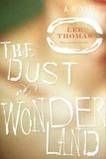Topic: Writers on Remakes
I'll Be Back
by, Stephen Graham Jones
Village of the Damned. The Thing. The Fly. The Hills Have Eyes. Willard. The horror remake can work. But yeah, I know. The Haunting. The Wicker Man. The Stepford Wives. The Omen. Black Christmas. Not necessarily terrible movies, but, when compared to the original? Yeah.
And of course it’s fun to try to get an angle on why this spate of remakes. Because the audience is already there, and primed by the original, making this do-over a better financial risk? Maybe; I don’t know the numbers. Because there’s nothing original to do anymore, or because all the ‘good’ horror is already in horror’s past, leaving it to gnaw its own entrails in hopes of gaining some slight bit of nutrition? Hope not. Don’t really think so. Because these ‘classic’ movies are in danger of being forgotten? Kind of doubt it.
Or, you can spin it positive: what the remakes, both the good and the not-so-great ones, what they do establish is a continuing interest in horror on the big screen. I mean, the studios aren’t going to invest in a movie that their marketing research doesn’t suggest can turn a profit. Not to malign them too much, the studios—if they don’t watch their ledgers, we won’t get any horror, I’d guess. But, too, greenlighting a remake is kind of another way of saying that the original can be improved upon, too. Either that it was flawed in the first place or, for today’s audience, it’s become flawed.
I don’t know. I don’t want to be cynical about the remake thing. I mean, I hit them all, opening day usually. But yeah, more often than not, I get disappointed.
Maybe classifying types of remakes can help.
First, I’d say there’s the Salvage Job. Trying to make a movie work, a movie that had some great premise or concept but was hindered by budget, acting, production values, all that. It’s a pretty honorable tack, this one, though you can probably tell that it’s set up to get just no support: the way to be most ‘honorable’ here is try to revive some slasher-clone that everybody hated back when. But make it work now. Or, I don’t know. Me, I’d love to see Intruder remade, say. It was a blast in the first place, but I think it could be a blast again, just without the Jordache.
A sub-class of this Salvage Job, I think, would be the Update. Say with Prophecy: the Monster Movie , making it so that the bear-monster’s a bit cooler. And not the Star Wars trick of putting the alien dinosaurs back in the shot, but remaking the whole thing. Except of course I kind of love Prophecy as it is, clunky bear and all. To take it out of 1979 would likely ruin it. Or, CGI the fighting skeletons in Sinbad ? C’mon. That’s what Sinbad’s made of. Too, this Update trick, it’s a slick, slick slope. I mean, say the alien in Alien can be cooler with some digital tricks. It shouldn’t be done, right? Not just because Alien’s untouchable—I think we probably all thought Psycho was too—but because updated effects at the cost of everything else, it’s not such a good trade.
Then of course there’s the total Reimaginings. Like what Rob Zombie seems to be doing with Halloween . These I think can
be pretty cool, are almost a form of homage or something, even, or at least of sneaking into the church, fondling the sacred relics with your grubby little hands. However, I think everybody kind of hated the Reimagining of When a Stranger Calls . Mostly, I suspect, because it chose to take the first act of the original and tense it out to ninety minutes. Me, I had no problem with it, just considered it a movie with the same name. But then there’ll be a Reimagining like Black Christmas , right? Which, I know, going by what I said about Stranger , I should try to separate from the original, just appreciate or deride on its own merit. Except, where Stranger truncated then expanded that truncation, which I can forgive, Black Christmas uncreeped itself by doing what the original wouldn’t—it showed the killer, and gave us the back story. It over-explained itself, when the real terror’s the not-knowing. In 1974 and now.
Talking 1974, though, does Texas Chainsaw Massacre count as an Update, you think, or a Reimagining? Hitcher? Night of the Living Dead?
I don’t really know. And maybe it’s just stacking angels on needles to try to tease it all apart, too. Strictly mental exercise, to no purpose. I did like each of them anyway. And I was going to qualify that with ‘if that means anything,’ but, too, that means everything, doesn’t it?
At the same time, though, man, as many ugly spots as Friday the 13th might have, I don’t think I’d be that interested in seeing it done over either. Part of it’s nostalgia, sure—something a good half of the audience might not have to deal with—but part of it too is that the allure might very well be contained within those ugly parts. I mean, as slick as production is lately, the audience is kind of losing those little gaps to laugh in. Just as strict tension release, or as reminder that this isn’t really real (which is different than being ‘fake’).
And, too—compare novels and movies, say. You engage a novel at a deeper level than a movie, I think. Just because you have to create and maintain this whole other world, instead of just getting it spoonfed to you. By the same token, a movie with slick production values, it makes you think that poor guy really got cut in half with a machete. Wow, dude. But with latex and all that, even with the gods of effects with their hands on the bulbs that lead to the blood packs, still, in order for us to believe that guy’s getting split like that—or to believe that that dummy’s a guy, really—we have to engage the movie just a little bit more. Suspend our disbelief, yes. It’s one of the first and most vital elements of storytelling, making a deal with the audience that if they’ll do that, you’ll do ‘this’ for them (‘this’ being to entertain, challenge, move, stimulate, whatever—just not betray, basically), and it’s being overlooked a lot these days. Especially, I’ll say, in remakes.
Yeah, though, the audience, it’s changing too. Maybe horror movies are simply changing with it, to keep up. Case somewhat in point: when the Exorcist with the spiderwalk crashed the theatres, I was there first showing, the theater packed. But then, as the pea soup progressed, instead of cringing like I was, and wishing I’d just seen something safe, the audience was laughing. Not that nervous kind that’s supposed to prove they’re not scared either, and not the good kind, like when Freddy does something especially evil and gross. No, they were laughing like it was an artifact. It hurt. Not because it made me a wimp for being scared, I’m used to that, but because the proper response to Exorcist is throwing up, or going to church, or asking for your money back, or hating whoever told you you’d like this. Not amusement.
Does this mean some executive’s thinking of remaking Exorcist , though? Recasting little Reagan?
If what I’ve heard’s correct, and I don’t think it is, they’re talking about doing it to Conan, anyway. And if Crom’ll let him fall, then man, there’s no telling. Jaws. ET. Fatal Attraction, Bladerunner. Except the argument for making them, wouldn’t it be along the line of Peter Jackson’s King Kong , a re-everything that pretty much blew away all the other versions? Why not redo Terminator ? Or, in ten years, the whole Lord of the Rings trilogy? Or a twentieth anniversary new and improved Scream , with Nev as Sydney’s dead mother?
It scares me, yeah.
And maybe that’s the real horror of it all.
 Stephen Graham Jones is the critically-acclaimed author of four novels and one short story collection, including All The Beautiful Sinners, The Fast Red Road: A Plainsong , and The Bird Is Gone: A Manifesto. His most recent novel, Demon Theory , is written as a literary film treatment littered with footnotes and experimental nuances that combines glib dialogue, fascinating pop culture references, and an intricate subtext as it pursues the events of a haunting movie trilogy too real to dismiss.
Stephen Graham Jones is the critically-acclaimed author of four novels and one short story collection, including All The Beautiful Sinners, The Fast Red Road: A Plainsong , and The Bird Is Gone: A Manifesto. His most recent novel, Demon Theory , is written as a literary film treatment littered with footnotes and experimental nuances that combines glib dialogue, fascinating pop culture references, and an intricate subtext as it pursues the events of a haunting movie trilogy too real to dismiss.

Purchase Demon Theory
Déjà Vu All Over Again
By, Lee Thomas
I’ve noticed a number of threads on genre message boards about the current spate of Hollywood remakes, and invariably someone posts something along the lines of, “X is a perfect film. Why can’t they leave it alone?” Well, why can’t a vampire stop that filthy plasma habit? Hollywood feeds on money and remakes are an easy way to drain wallets. It’s about marketing and name recognition plays a significant role in that rather unwholesome practice. This applies to sequels as well – I mean did Jason Takes Manhattan really expand and enrich the Friday the 13 th mythos? But this is about remakes, so I’ll save the sequel rant for another time.
Now, before I get pegged as a bitchy grandpa – “Back in my day, we called gasoline petrol, and …” etc., etc. – all remakes are not bad things. In fact, one of my favorite films is a remake, though it’s not exactly current. John Carpenter’s The Thing is arguably the best horror film to come out of the 80’s. More recently Dawn of the Dead underwent a reworking and stands tall on its own while kicking much ass. I will even admit the “new” House of Wax is a guilty pleasure if only for seeing a pipe penetrate Paris’s brain. (It’s cool; she wasn’t using it.)
Then there’s Black Christmas – Naughty. Bad. Spank. Just…don’t.
Both Carpenter and James Gunn (the writer for Dawn ) showed an immense amount of respect for
and understanding of the source materials, while bringing a wholly new groove to those properties. They loved and followed the genre that spawned and ultimately celebrated their visions of the works. One watches a coiled pile of cinema like When a Stranger Calls (2006) and can’t help but wonder if anyone involved has ever seen a horror film, let alone appreciated one. But the title was out there, and it was familiar, and it was bankable. It didn’t matter who wrote, directed, starred in, or functioned as best boy on the project. The name sold the film. The soulless execution sank it.
I, for one, won’t throw shade over the concept of remakes. As an author I would certainly like Hollywood to pick up more original material. (Producers can contact me via email. We’ll do lunch, sweetie. Love your hair. Who did your eyes?) but if a movie works, I don’t really give a damn where it came from as long as I get my popcorn’s worth. The next Romero, Craven, or Carpenter could emerge because of a remake of Cellar Dweller or From Beyond . However, if Hollywood insists on cranking these things out like action figures (all sleek and molded without a hint of cock or balls) the very concept of remakes will lose its teeth. And without teeth that whole cash suckage thing is going to get a lot harder.

Lee Thomas is the Bram Stoker Award-winning author of Stained, Parish Damned and The Dust of Wonderland.

Purchase The Dust of Wonderland
On Horror Movie Remakes…
By, Mary Sangiovanni
Regarding horror movie remakes, I'm generally of the opinion that if a movie was good to begin with, there is no reason to remake it – especially classics like Psycho, Halloween, Texas Chainsaw Massacre . There are a few exceptions, where the remake exceeds the original or puts a new signature to it – John Carpenter's The Thing comes to mind right away. There are also some films (like Invasion of the Body Snatchers ) that have a basic brilliance of idea that a number of non-direct remakes can be made without trouncing the idea to death.
I suppose there's an appeal to remaking movies. Maybe moviemakers want a chance to be a part of the movie classics that define the cinematic end of the genre. Ditto actors, who possibly want a crack at a famous horror movie role. I'm sure there's a thrill in being able to update the special effects of a movie like, say, The Fog remake. I get that. I also get that above all else it comes down to money. The originals did well enough (and generally enough time has passed) that Hollywood feels it's easy money to throw up CGI thrills and chills around a script which is, for all intents and purposes, mostly written.
However, I think if movie folks want to leave their mark on the legacy of horror films, they ought to create new classics. There are so many creative folks working on horror these days with an abundance of talent and originality, and there are plenty of new stories to be put up on the big screen.

Mary SanGiovanni’s fiction has appeared in anthologies and magazines since 2001. Leisure recently released her first novel, The Hollower.

Purchase The Hollower




Reader Comments